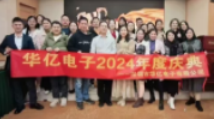Doha, April 16 (Xinhua) -- Qatar's Al Jazeera website recently published an article by Kamal Munir, a professor of strategy and policy at the University of Cambridge in the United Kingdom, titled "Sorry, America, Tariffs Don't Bring Back Jobs". The article states that globalization has reshaped the US labor market, and imposing tariffs will not bring jobs back to the US. The article summary is as follows:
As early as a White House dinner in 2011, then US President Obama asked the late founder of Apple, Steve Jobs, "How can we make Apple phones in the United States?" Jobs replied, "Those jobs can't come back
High tech products like Apple phones, which heavily rely on global supply chains, require many years to establish the industrial ecosystem behind them, and the accompanying technological capabilities, labor skills, and industrial collaboration relationships are difficult to achieve overnight. Factories cannot move from one country to another at will.
The United States has announced tariffs on imported goods in an attempt to reshape its manufacturing industry. However, can imposing tariffs on the world really solve the problem of US competitiveness? It depends on what goals the United States hopes to achieve through this policy: is it to increase bargaining chips in negotiations? Is it to strive for more market access? Do you still want to bring back those outsourced jobs to the United States?
If it is only to increase bargaining power, the United States may be able to force certain countries to make concessions, but the cost will be a decrease in the purchasing power of American consumers. Even if some agreements are reluctantly reached, it may not truly change the fate of companies like General Motors or Ford. As for the dream of "manufacturing return", US Secretary of Commerce Howard Lutnick has acknowledged that most factories returning to the United States will be operated by robots.
Forcing countries and businesses to invest in the United States through tough measures has limited effectiveness. It takes many years to establish an industrial ecosystem around a certain product. If the true goal of the United States is to regain its dominant position in innovation, development, and manufacturing, then cutting research funding is not a wise move.
The tariff policy may not be effective for the Trump administration. If it continues to forcefully push forward and ultimately leads to an increase in inflation, it may become its political 'own goal'.







